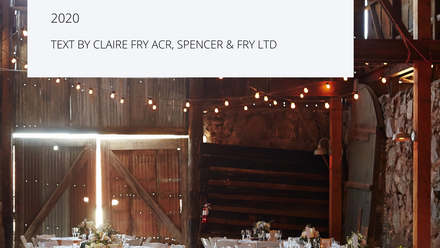Events can bring real value to museums and historic sites when risks to heritage are properly managed.
By Claire Fry ACR, Spencer & Fry Ltd
Significant income can be generated from hosting events in museums and historic properties. Events also have the potential to reach a wider demographic than gained from usual opening, therefore expanding the number of visitors and increasing spend at the property/museum.
However, hosting events in sensitive interiors or alongside collection items can also increase risk of damage. Most events will cause an increase in dust levels and potentially increase the risk of accidental damage or theft of collection; events that provide food and drink will increase the likelihood of food debris and spillages which may have an impact on pest activity.
Explore the different aspects of events management or download our Events in Museums and Historic Buildings factsheet.
Planning for events
When considering hosting functions and events at your property it is important to assess the different areas of the house or museum and discuss which spaces are suitable for hosting events. ‘Event’ is a very general term; there may be areas that are suitable for some events but not suitable for more invasive events.
Take a look at our checklist outlining the key decisions that should be made for each area ahead of, during and after events. In addition to the practical considerations that go with planning events, consider the risks and opportunities:
![]()
How can I minimise risk?
There are several steps you can take to minimise risk to your historic property if you are considering hosting an event. Make sure to:
- Assess which interiors are suitable for what types of events, some areas more robust than others, where can food and drink be allowed, what are the room capacities for events
- Discuss what protection is needed, glass/Perspex tops for tables, heel protectors, matting, supervision in certain rooms, do certain collections need removing
- Put restrictions in place, what food and drink are allowed, capacity limits, access routes, choice of contractors familiar with building, how many events allowed, type of events allowed
- Plan what kind of equipment is allowed onto the property and where it can be placed and used
- Ensure there are adequate resources for cleaning interiors and collection before and after events, extra resources
- Spill kits on hand where food and drink are involved
- All event staff should be trained to deal with spillages and have enough knowledge to be able to adequately protect interiors and supervise guests
Consulting a conservator
One of the best ways to minimise risk is to consult a professional conservator. Conservators can support you throughout the process and make sure everything goes smoothly. They can:
- assess the risks associated with different events before and during events
- advise on functions and events risk assessments, policies and procedures
- supervise set up and pack down, ensuring liquids and food are correctly set up and removed from site
- stipulate protection and restrictions needed
- provide supervision during the event, dealing with unexpected challenges
- work with contractors on behalf of the property and assess RAMS.
- inspect props, plinths other items for pest infestation, mould that could introduce a biological risk into the property
- review menus, lighting plans, flower arrangements and proposals for music or other entertainment, assess risks and provide advice on how to minimise/remove risk
- provide Functions and Events training for staff and contractors
- assist with object movement
- advise on the placement and positioning of equipment
Find a conservator you can trust:
Further information and advice
English Heritage – Practical Conservation Guidelines for Successful Hospitality Events in Historic Houses
National Trust Manual of Housekeeping, Events: Planning and Protection. In The National Trust Manual of Housekeeping. 2005
The Show Must Go On! Your guide to safe, successful and conservation friendly events. Historic Royal Palaces. 2010.
AIM Guidelines for Successful Venue Hire and & Corporate Hospitality

